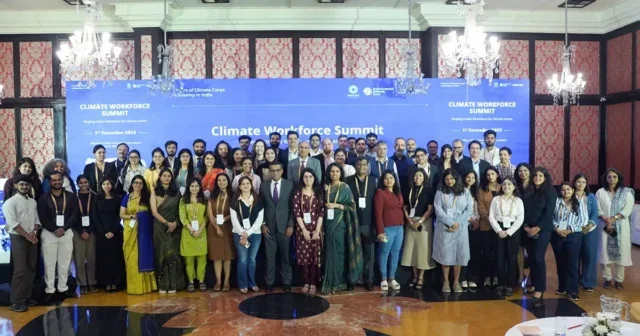Grow a New Climate Workforce
The challenge: Inaction on the climate crisis could cost $178 trillion in economic value globally by 2070, while immediate action could supercharge the global economy by $43 trillion over that time. Navigating these risks and opportunities requires new kinds of expertise. Businesses and public institutions alike are urgently seeking talent with the skills to reduce energy costs, engage supply chains and manage climate-related risks. But the supply isn’t keeping up — the talent pool must double by 2050 to meet demand.
The opportunity: Sustainability skills are a powerful climate solution available today. By training and embedding these skills throughout the enterprise, companies can save energy costs, reduce waste and thrive in the net zero future. Forward-thinking companies are investing in talent that advances climate goals while building expertise and professional networks to sustain long-term impact.
How we collaborate: EDF has pioneered new ways to work with professionals and strategic companies to cultivate and grow new talent while boosting capacity to set and meet climate targets. EDF’s Climate Corps® recruits and places passionate fellows at organizations in the United States and Asia, where they advance projects that align with climate goals all while developing expertise and a professional network they can use throughout their careers.
Meanwhile, EDF’s Net Zero Action Accelerator empowers corporate professionals with guidance, science-based tools and expert trainings to help embed sustainability into core business operations to strengthen their bottom line.
-
BlogClimate Corps Sets Up Next Generation of Professionals
-
PodcastEDF's Degrees Podcast Series
-
Action GuideEmployee Engagement Guide
EDF Climate Corps' Impact
700+
companies and organizations that have hosted EDF Climate Corps fellows since the program was founded in 2008.
2,000+
graduate students who have participated in EDF Climate Corps.
$1.6bn+
energy savings identified by EDF Climate Corps fellows — representing over 2.3 million metric tons of carbon emissions.














